The mystery of Switzerland’s surging imports of Uzbek and Kazakh gold
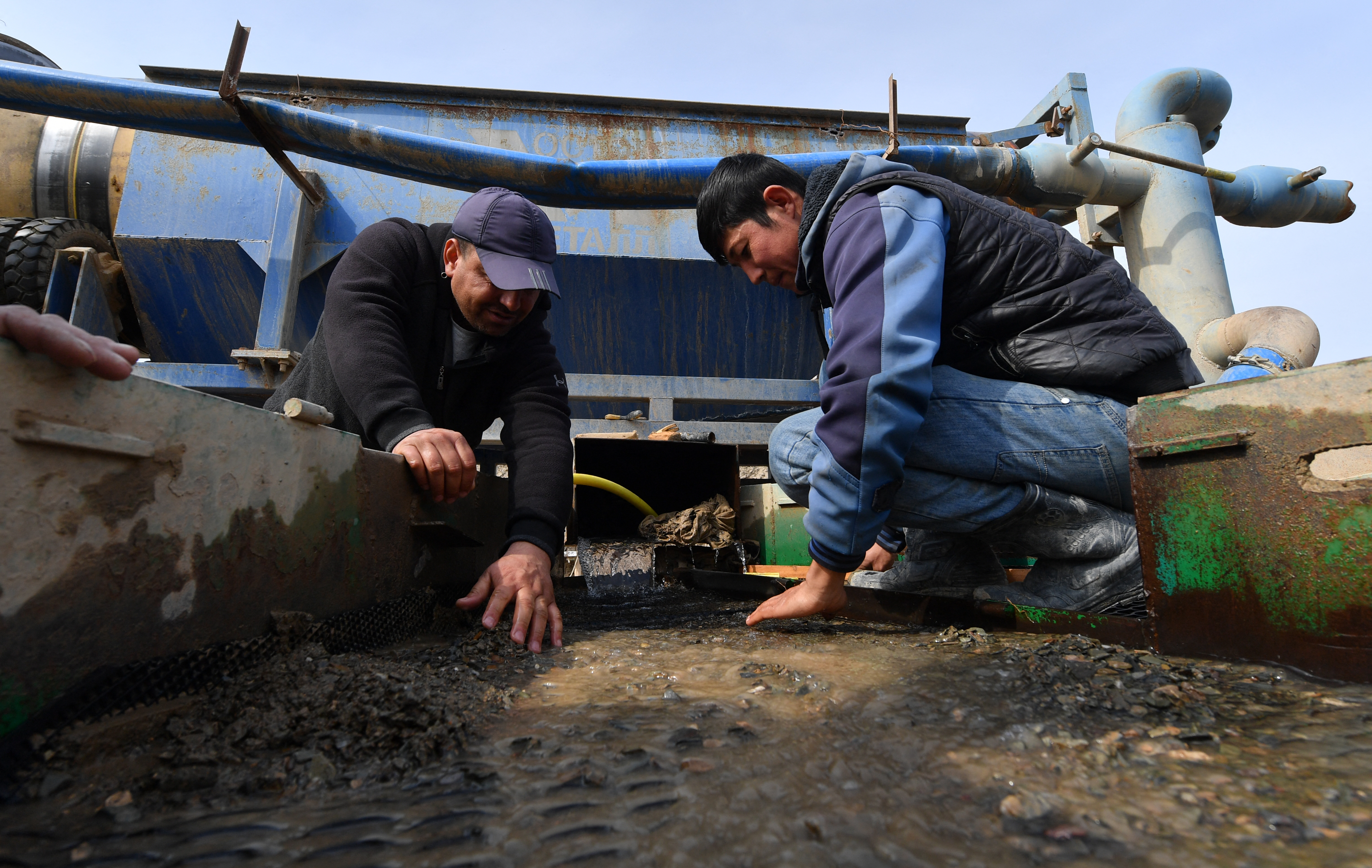
Switzerland’s imports of gold originating in Uzbekistan and Kazakhstan have boomed since Russian President Vladimir Putin launched his invasion of Ukraine. Trade data and expert analyses suggest some could be surreptitiously coming from Russia in violation of international sanctions. SWI swissinfo.ch unravels the gold route from the two Central Asian nations to Switzerland via the United Kingdom.
Swiss purchases of the precious metal from the two post-Soviet states took off in late 2021, just before Russia began its assault on Ukraine, an analysis of customs and related data by SWI swissinfo.ch shows. The trend has accelerated since then, raising concerns that Uzbekistan and Kazakhstan are being used to evade sanctions intended to punish Moscow and helping Putin finance his war machine.
“Now that Russia cannot freely export gold, there is a high risk that these two countries are being used to send gold to the UK and to Switzerland in order to be then sent out into the world market,” Mark Pieth, professor of criminal law at the University of Basel and a prominent anti-corruption expert, told SWI swissinfo.ch.
Pieth is not alone in that assessment. SWI swissinfo.ch spent six months crunching trade figures and consulted two dozen national and international gold industry experts, including data providers, financial institutions, risk analysts, gold refining professionals and regulators. Many said they believe these imports carry legal and ethical risks for buyers because they could be breaking international sanctions and exposing themselves to reputational damage.
Global gold trade data is notoriously flawed. Poor transparency, shortcomings in customs and other data, divergent definitions of industry terms, lack of systematic tracking of the gold trade, and the inability to trace the source of the precious metal once it’s been melted, make it almost impossible to know for sure the origins of Switzerland’s imports. Despite these shortcomings, the data is widely used by industry players and regulators to support due diligence assessments.
Trade and customs data shows that Kazakhstan and Uzbekistan shipped more gold than they produced and sold from their reserves last year. So where did the excess gold come from? For many experts, the most logical explanation is that at least some originated in Russia, the world’s second-largest producer of the precious metal.
“The hypothesis is that they have imported gold beyond what they have produced, and they are reexporting that gold,” said Pieth, noting that Russian gold could account for the difference. “Whether the gold goes to banks in Switzerland or to be refined, the risk is that gold from both countries does originate from Russia.”
In Switzerland, the financial sector is the biggest buyer of imported gold from these two nations, according to Swiss customs data. Our findings and conversations with industry insiders suggest that Swiss bank UBS is probably the main buyer, while among the Switzerland-based refineries Valcambi accounts for some of the demand. Both companies say they have done their due diligence.
Gold prices at record highs
The spikes in shipments of gold originating from Kazakhstan and Uzbekistan are significant. In 2023, a total of 130 tonnes of Uzbek gold (valued at CHF7.3 billion, $8.54 billion) – 100 tonnes imported directly from Uzbekistan and 30 tonnes shipped via the United Kingdom – entered in the form of highly refined gold bars, according to data from the Federal Office for Customs and Border Security (FOCBS). That’s almost as much as was shipped in from the United Arab Emirates (UAE) (150 tonnes), one of the world’s top gold trading hubs. The same year, 59 tonnes of gold bars (valued at CHF3.3 billion) came from Kazakhstan – 58 tonnes via the UK and one via Kyrgyzstan.
This meteoric growth began in late 2021. Swiss imports of Uzbek gold picked up in October that year after a gap of two years, while those originating from Kazakhstan restarted in January 2022, monthly data shows. The momentum accelerated at the beginning of the war in Ukraine and rose to record highs at the end of 2023. Imports have remained at high levels this year. In the first six months, more than 82 tonnes of Uzbek gold and 21 tonnes of Kazakh gold were imported either directly or indirectly. That compares with 85 tonnes of Uzbek gold and 19 tonnes of Kazakh gold in the same period last year.
Although Switzerland’s imports of Russian gold also rose during the same period – to 63 tonnes in both 2022 and 2023 from 18 tonnes in 2021, this was gold sent from Russia to vaults in London before the war began and thus not subject to the sanctions imposed on Moscow at the beginning of August 2022, the FOCBS told SWI swissinfo.ch.
The FOCBS does not provide explanations or analysis of the spike in imports of gold originating in Uzbekistan and Kazakhstan, which are both members of the nine-nation Commonwealth of Independent States (CIS) that includes Russia. When approached for comment by SWI swissinfo.ch, the head of media relations, Simon Erny, said the FOCBS collects statistical data and leaves the analysis and interpretation of the data to third parties.
“CIS countries appear to be facilitating a massive spike in trade – very unusual and likely a rerouting of trade to bypass sanctions,” a wealth manager working for a Swiss bank, who did not want to be identified, told SWI swissinfo.ch.
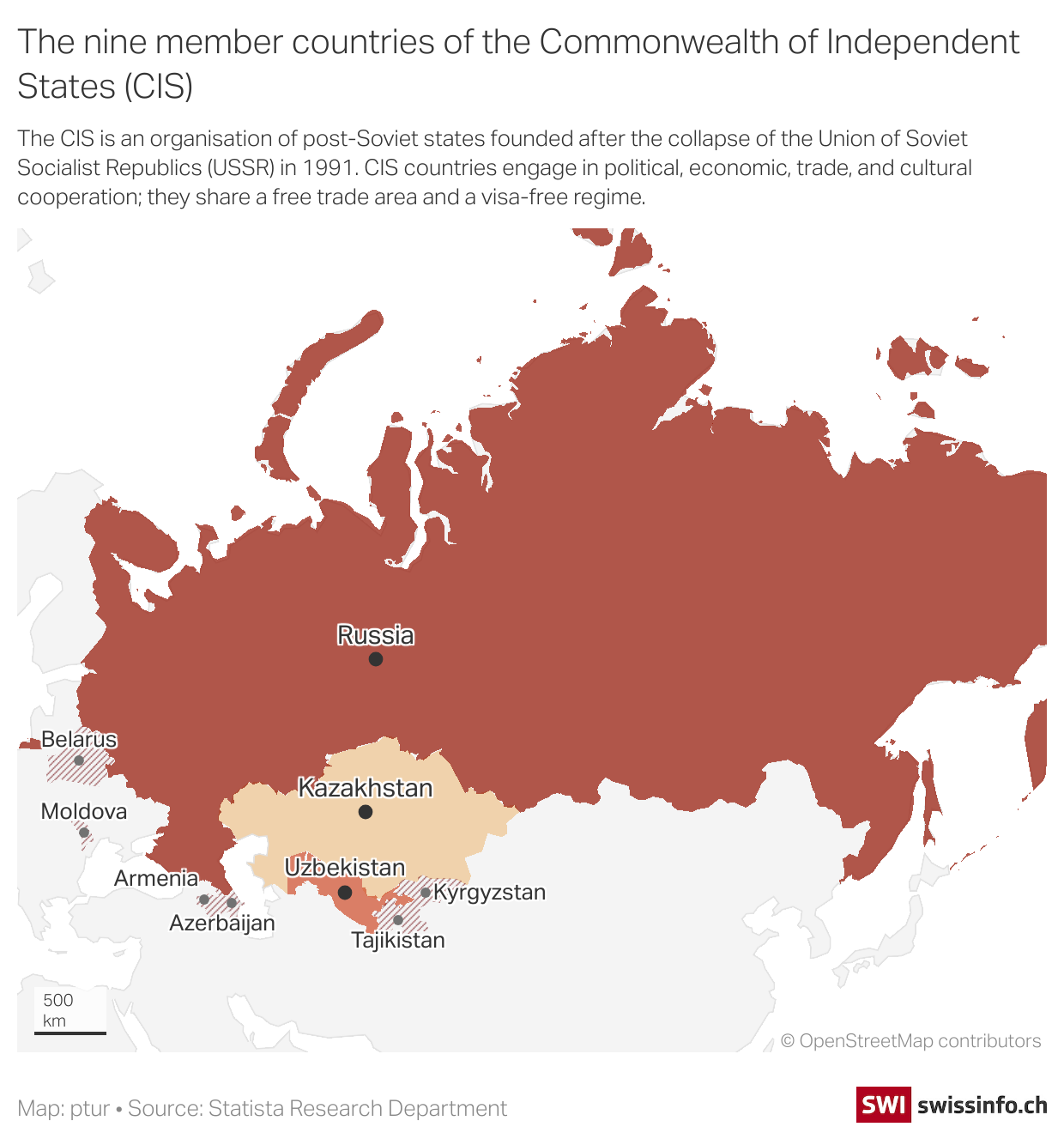
The UK and Switzerland have traditionally been the biggest single markets for Russian gold, which has a reputation for high quality. Swiss imports of gold bars from the country peaked in 2013 at 82 tonnes and have declined since then as London took an increasing share of the market for refined gold. By 2021, the lion’s share of Russia’s gold exports went to the UK (88%), with Switzerland and Kazakhstan trailing a distant second at 2.5%, according to Comtrade, the United Nations’ global trade statistics database.
+ Explainer: Why Switzerland remains a ‘big buyer’ of Russian gold
These traditional export destinations have been severely disrupted since Western countries imposed a ban on the purchase, import and transfer of the precious metal from Russia in 2022. That created an opportunity for other gold-producing nations to fill the gap – and Uzbekistan and Kazakhstan were two countries that benefited because, like Russia, they had the capacity to produce highly refined gold.
Following the sanctions imposed by the G7 on Moscow for its invasion of Ukraine, Switzerland banned the purchase, import, transit and transport of gold from Russia starting on August 4, 2022.
Gold exported from Russia after that date cannot be imported into Switzerland. However, Russian gold can still be imported provided it comes via a third country that had obtained the gold before August 2022, according to regulations issued by the State Secretariat for Economic Affairs (SECO).
In an email to SWI swissinfo.ch, SECO said that the gold trade is regulated by other legal provisions, namely the Federal Act on the Control of the Trade in Precious Metals and Precious Metal Articles, and the Ordinance on the Control of Trade in Precious Metals and Articles of Precious Metals. The latter sets out the due diligence obligations of trade assayers with regard to the origin of the gold they use in their transactions.
The Federal Office for Customs and Border Security (FOCBS) is responsible for supervising compliance with due diligence obligations.
Gold exports from the two CIS countries to the UK, a key global trading hub, soared. While minimal before May 2021, its imports of Kazakh gold bars have almost doubled year on year since then, reaching 220 tonnes in 2023, British customs data show. The UK started importing gold bars from Uzbekistan in April 2019. Switzerland and the UK account for virtually all imports of gold originating in Kazakhstan and Uzbekistan.
Sudden trade variations – and of this magnitude – are noteworthy, several analysts and industry professionals told SWI swissinfo.ch after we shared the figures with them. The fact that the trade took off only months before the war in Ukraine started, the already close ties between the two countries and Russia, coupled with high levels of corruption, present clear red flags, they said. Some declined to be named due to the sensitivity of the subject.
“The question is why suddenly from [late] 2021 you have a huge increase in Kazakh and Uzbek gold imported into Switzerland and the UK,” said Marc Ummel, head of raw materials at Swissaid, a Bern-based NGO whose activities include monitoring and investigating the world gold trade.
Phantom gold
The sheer volume of Kazakh and Uzbek gold imported into Switzerland and the UK compared with their reported gold mining output and reserves raises doubts about the true origins of the gold. The way gold trade data is collated makes it difficult to be 100% certain of the original source of the precious metal in any trade dynamic, but Swiss and UK statistics are relatively solid.
Switzerland and the United Kingdom – both major players in the global gold industry – provide more granular data than many countries. Gold data from Russia, Kazakhstan and Uzbekistan can be drawn from the central banks of those countries, the World Gold Council, the United Nations’ Comtrade data platform, the US Geological Survey, and company reports.
In British customs data, Kazakhstan and Uzbekistan are shown as countries of origin – where the gold was initially produced – and countries of dispatch – the last point of shipment. Not all databases separate these classifications, complicating long-term analysis of the gold trade patterns and potentially leading to discrepancies in the figures.
SECO explains Swiss foreign trade statistics follows the country-of-origin principle. The country of origin is the country where the goods were extracted, manufactured, or subject to the last significant processing. So if the gold was last processed in Russia, it is considered to be of Russian origin. However, a third country can be the country of dispatch. Countries of dispatch are not published as standard in Swiss foreign trade statistics but this level of detail can be obtained on request.
Since 2021, Switzerland has required importers to provide additional information to distinguish between mined and refined gold. Russia, Kazakhstan and Uzbekistan are not just gold producing nations but also boast several refineries. The data reviewed by SWI swissinfo.ch for all three countries shows that the gold imported from these countries is primarily gold bars with a high level of purity. The same principle applies to gold that went from this trio to the UK.
Kazakhstan, Uzbekistan and Russia are all part of the Commonwealth of Independent States and as such enjoy privileged trade ties. Kazakhstan is, along with Russia, part of the Eurasian Economic Union (EAEU). This union guarantees the free movement of goods, services, capital and labour. The Kazakh-Russian border is the second-longest land border in the world. It is notoriously porous, and smuggling is common for a variety of goods including gold.
More than two-thirds of Switzerland’s Uzbek gold is imported directly from Uzbekistan, with the remainder coming from the UK, while almost all of its Kazakh gold comes from the UK, according to detailed data provided by Swiss customs at the request of SWI swissinfo.ch. All Kazakh and Uzbek gold imported into the UK comes directly from the two countries, British customs data indicate.
In 2023, the UK imported 220 tonnes of Kazakh gold bars, according to customs data, while Switzerland imported 59 tonnes. The UK figures alone are well above Kazakhstan’s estimated gold production that year of around 130 tonnes. Of that total, around 60 tonnes of the precious metal were produced by Kazzinc External linkand Tau-Ken AltynExternal link, the only two Kazakh refineries included in the Good Delivery ListExternal link (GDL) of the London Bullion Market Association (LBMA), which certifies that the gold meets international standards of quality and origin.
That same year, Switzerland imported 100 tonnes directly from Uzbekistan –and the UK imported 40 tonnes, while the country’s estimated gold production was around 100 tonnes. Customs figure also show that Switzerland imported 40 tonnes of Uzbek gold indirectly via London.
One factor that could help explain the gap is the sale of gold by the two countries’ central banks to take advantage of rising prices.
While many central banks are holding onto or adding to their holdings, the Central Bank of the Republic of Uzbekistan and the National Bank of Kazakhstan (NBK), which have primary responsibility for all gold sales overseas, have recently become major net sellers of the precious metal – likely to benefit from sky-high prices, after having built up substantial reserves over the past couple of years (Kazakhstan since 2022, Uzbekistan since 2023).
According to data from the World Gold Council, the NBK’s gold reserves fell by 57 tonnes to 294 tonnes in 2023, the second consecutive annual decline, while Uzbekistan’s central bank reported a drop of roughly 25 tonnes to 371 tonnes. Neither central bank responded to requests for comment from SWI swissinfo.ch.
Based on SWI swissinfo.ch’s analysis of all the publicly available data, as well as information provided by companies and industry experts, the quantity of gold imported into Switzerland and the UK in 2023 from the two countries significantly exceeded the estimated volume of gold produced by their refineries plus the two central banks’ sales of their gold reserves.
If the infographic doesn’t display, you can see the figures for Kazakhstan hereExternal link and those for Uzbekistan here External link.
Is it Russian gold bypassing sanctions?
Experts interviewed by SWI swissinfo.ch said they believe that the quantities of Uzbek and Kazakh gold involved are too substantial not to be suspicious, and most said they suspect, with varying degrees of certainty, that Russian gold is involved.
From 2017 to 2022, Uzbekistan’s private sector had roughly 33.6 tonnes of gold inventory accumulated from domestic production that had not been exported in that period, smaller than the amount exported to the UK and Switzerland, according to calculations by the wealth manager and cross-checked by SWI swissinfo.ch. In other words, not enough to account for the 2023 discrepancy, estimated by SWI swissinfo.ch to be in the range of 15 to 45 tonnes.
“This presents light circumstantial evidence that perhaps there is unaccounted gold from somewhere else, worth a substantial amount,” he said, noting the unavailability of data prior to that timeframe.
“I am convinced that the leap in Swiss imports at the time the war in Ukraine set in can only be explained by an influx of Russian gold into these two countries which was then re-exported into the UK and Switzerland.”
Mark Pieth, gold and anti-corruption expert
Two Swiss gold industry experts pointed to the strong likelihood of a “Russian angle” and a European analyst went as far to express 100% confidence that these routes were being used to launder Russian gold. They all declined to be named. Pieth, who wrote a book scrutinising the gold industry in Switzerland, had no reservations when concluding it is likely that Russian gold is in the mix.
“I am convinced that the leap in Swiss imports at the time the war in Ukraine set in can only be explained by an influx of Russian gold into these two countries which was then re-exported into the UK and Switzerland,” he said after reviewing SWI swissinfo.ch’s data analysis.
Gold exported from Russia since July 21, 2022, has been increasingly routed through countries that have not imposed sanctions on Moscow. The UAE and Hong Kong are among the known new routes for Russian gold since the war started. Gold transit hubs enable Western sanctions to be evaded – once the gold is melted down, recast, or refined, its origin becomes impossible to establish, making it difficult to identify sanctions violations and implement any form of punishment.
International trade in gold is not regulated or monitored by any single organisation. The nearest thing to a global watchdog is the LBMA, a trade association that oversees the London gold market, the largest in the world and the go-to for central banks and gold investors. It aims to promote transparency and responsible sourcing, and it also sets quality standards. With around 150 members including traders, refiners and producers of precious metals, it manages the GDL list of approved refiners. Six Russian gold refineries were suspended from the list in March 2022.
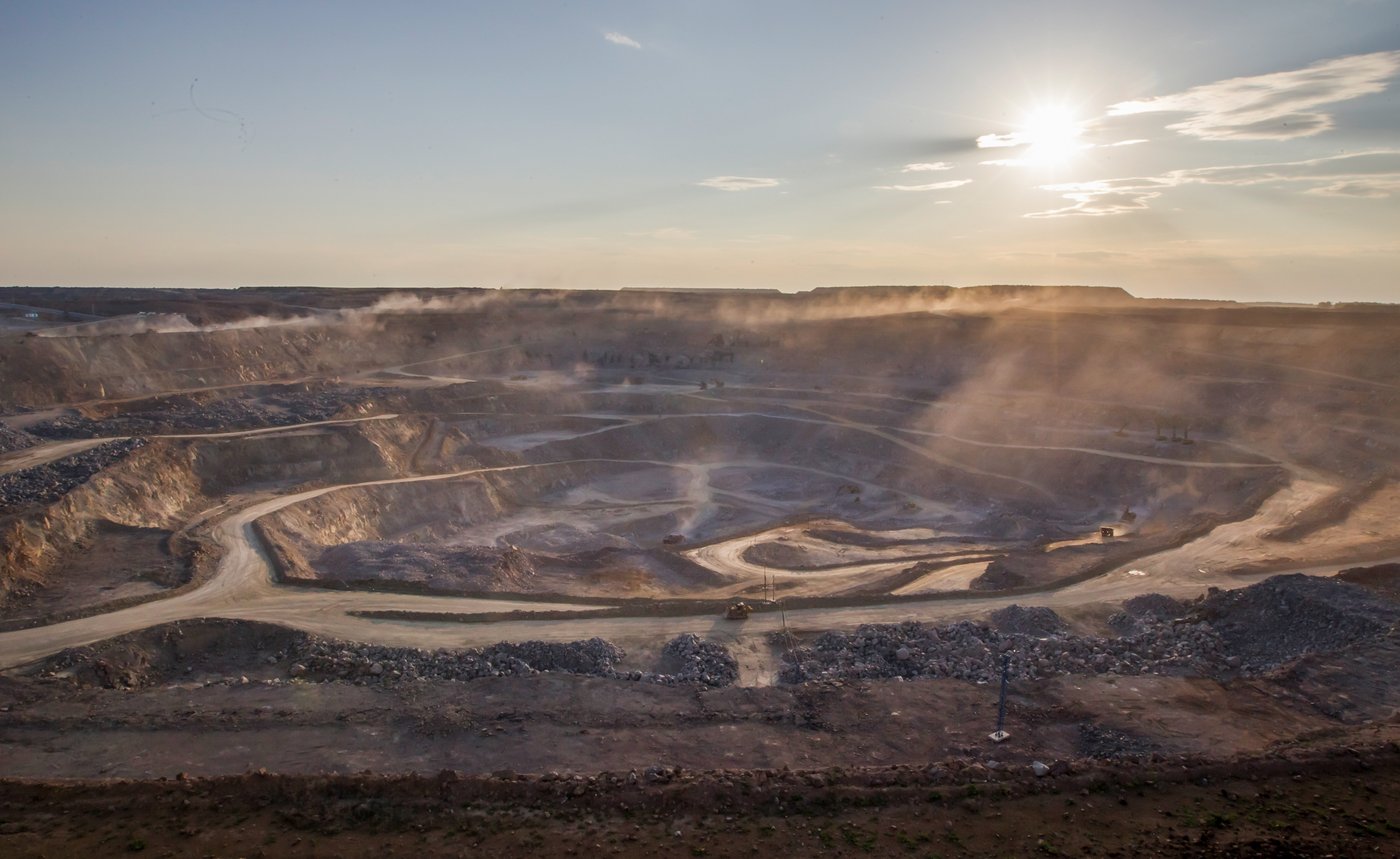
Kazakhstan and Uzbekistan each have two refineries on the GDL. Three did not respond to emailed questions about their gold exports. Kazzinc, Kazakhstan’s largest producer of precious metals, referred questions to Swiss-based multinational Glencore, which has a majority stake in the company, but it did not address our questions about Kazzinc’s gold exports. Glencore referred SWI swissinfo.ch to its annual reports and declined to answer specific questions.
LBMA-accredited refineries must undergo an annual independent audit and respect local laws as well as sanctions imposed by the EU, US, and UK. The four LBMA-accredited refineries in Uzbekistan and Kazakhstan were found to be compliant, according to the latest audit reports available on the LBMA’s website. The association has yet to sound any warning bells regarding gold exports from either country.
Neil Harby, chief technical officer of the LBMA, said he does not see any alarming discrepancy in the trade figures. He said he’s confident that the UK and Swiss import numbers align with the gold output of the LBMA refineries and sales by the central banks of both nations.
He pointed to shortcomings in the Comtrade database such as double counting – the same gold being tallied in the UK and Switzerland if UK imports of Kazakh and Uzbek gold were re-exported to Switzerland within the same year. But SWI swissinfo.ch found discrepancies even when excluding gold acquired in the UK from Swiss import figures.
“For older material imported into Switzerland, the country of origin would be the UK and it wouldn’t be identified as Kazakh or Uzbek gold. So that’s the gap in our knowledge, (…) one thing that Comtrade data doesn’t give us,” Harby added.
Another possible explanation for the discrepancy is that the year the gold was imported into a country could be different from the year of production stamped on the gold bars, he said. Based on conversations Harby said he has had with the financial institution that imported those bars, “not all the bars that were imported in 2022 [from Uzbekistan and Kazakhstan] carry a 2022 stamp, they’re stamped with older years of production”.
“It makes sense because the demand, the flows have been so high. The UK vaults will be drawing down on older stocks to be able to meet the requirements.”
Neil Harby, LBMA chief technical officer
“And that, in my opinion, is what the discrepancy is. We’re pretty confident in the numbers coming from the official sources that we deal with,” Harby said. “It makes sense because the demand, the flows have been so high. The UK vaults will be drawing down on older stocks to be able to meet the requirements.”
The amount of gold held in London vaultsExternal link has fallen by 10% since early 2022, according to LBMA data. Industry experts told SWI swissinfo.ch that much of it has gone to Switzerland. Banks that were storing the precious metal in London vaults panicked after the Ukraine war and started to sell down bars marked with Cyrillic script, which is widely stamped on gold from Russia and Central Asian countries.
Banks and gold traders were concerned that Cyrillic-marked bars would be associated with Russia and that buyers may suspect they were trading sanctioned gold, which could account for the surge in imports to Switzerland via the UK that originated from Russia, some experts told SWI swissinfo.ch.
“Maybe some banks, as with Russian bars, did not want to have Cyrillic gold bars in their vaults,” said Swissaid’s Ummel. “I think the panic did not touch just Russian gold bars but also Uzbek and Kazakh gold bars.”
Who are the Swiss buyers?
Switzerland does not import mined gold from Kazakhstan or Uzbekistan, only refined gold bars classified as at least 99.5% pure, and most are bought by the financial and investment sector, according to Swiss customs data, which doesn’t publish details about individual importers. Purchases of refined gold originating in Uzbekistan by the financial sector have tripled since 2021.
It’s almost impossible to find out who is buying the gold – there is no public database and neither financial institutions nor refineries publish information about their sources. Central banks are usually big buyers and sellers of gold. The Swiss National Bank indicated that its own gold holdings have remained unchanged for several years, implying that all the gold bought by the financial sector was bought by private banks or publicly owned cantonal banks.
“Swiss banks maintain strict compliance with all applicable laws and measures, including sanctions imposed by Swiss, international and supranational bodies,” the Swiss Banking Association, a lobby group for the financial sector, said in an email. “This includes checks and processes to ensure that regulations are adhered to and prevent violations. Integrity and reputation are vital success factors for the financial centre.”
It did not answer questions specifically related to gold from Uzbekistan and Kazakhstan.
SWI swissinfo.ch asked four of the largest banks in the country if they were buying Kazakh and Uzbek gold. Three (Raiffeisen, Lombard Odier, Zurich Cantonal Bank) stated they were not, suggesting the main buyer was UBS, the nation’s largest private – a hypothesis confirmed by a top industry expert and which UBS neither confirmed nor denied.
“UBS only accepts gold from LBMA Good Delivery List refineries produced in accordance with the LBMA Responsible Sourcing Guidelines,” a spokesperson for the Zurich-based bank told SWI swissinfo.ch.
Some experts pointed out that since Kazakhstan and Uzbekistan both have LBMA-approved refineries, they can be considered a legitimate source of gold by banks and others.
Valcambi accounts for a meaningful share of the imported gold bars imported by refiners to Switzerland. The refinery bought no gold from either nation in 2021, according to data shared by the company. It bought three tonnes of Kazak gold in 2022 and almost 11 tonnes in 2023. Among Switzerland-based refiners it was the main buyer of Uzbek gold in 2022, buying 32.2 tonnes, and bought another nine tonnes in 2023, As such, Valcambi accounted for roughly 94% of the Uzbek gold bars and 36% of the Kazakh gold bars imported by Switzerland-based refiners in 2022-2023.
However, its CEO told SWI swissinfo.ch that its supplies are sourced from London, rather than directly from Kazakhstan or Uzbekistan. “Valcambi has not sourced any gold or silver from these two countries,” Valcambi CEO Michael Mesaric told SWI in an email. “Valcambi did import LBMA Good Delivery bars produced by LBMA Good Delivery refineries in Uzbekistan and Kazakhstan from a London clearing house.”
He said the refinery’s own due diligence procedures had identified the risk of Russian gold being mixed with Kazakh gold due to the lack of border controls between the two nations. “The fact that I am not in a position to explain the (circa) 52 tonnes of difference between domestic gold production and gold export in 2022, I must mitigate it by not taking material out of Kazakhstan and only accepting GD (Good Delivery) material” from the LBMA London clearing system, which was sent into the clearing before March 2022, he said.
“The same applies to all Russian GD bars or for bars from GD producers in destinations where we know that Russian bars are going into these markets, like for example Hong Kong or Turkey,” he said.

Recognising the risks
Other Swiss players in the gold industry also pointed to the difficulty of ensuring that Kazakh and Uzbek gold comes 100% from so-called clean sources. This means ensuring the gold was produced before 2022, that it originates exclusively from the primary production of these two countries and has not been mixed with gold of dubious or sanctioned origin (for example Russian gold) and does not belong to any sanctioned individual or legal entity.
Executives at some of Switzerland’s biggest refineries and banks told SWI swissinfo.ch that they do not purchase gold from the two countries even though their refineries have LBMA Good Delivery accreditation.
“There is no business relationship with Uzbekistan,” Robin Kolvenbach, CEO of Switzerland-based precious metals refiner Argor-Heraeus, told SWI swissinfo.ch. “We had one customer in Kazakhstan where the quantities were in the area of one tonne of gold per year. In line with our stringent policy regarding Russian gold, we stopped that business relationship when the war began. The compliance gets very complex because there are the ties between Russia and Kazakhstan. We decided to disengage.”
The Swiss Association of Manufacturers and Traders in Precious Metals (ASFCMP), which represents 15 companies involved in the processing and trading of precious metals, considers that these countries require special due diligence when it comes to establishing the origin of the metals. In late August, the association, which does not include Valcambi, said it had further consulted the LBMA and found no issues with gold from the body’s accredited refineries in the two countries.
“Kazakhstan and Uzbekistan, and generally countries sharing a border with Russia, are high risk areas for sourcing precious metals.”
ASFCMP president Christoph Wild
“Kazakhstan and Uzbekistan, and generally countries sharing a border with Russia, are high risk areas for sourcing precious metals,” ASFCMP’s president, Christoph Wild, told SWI swissinfo.ch.
“Our principle that no gold from dubious sources has a place in our industrial processes in Switzerland also applies to gold from Kazakhstan or Uzbekistan. Our recommendation remains unchanged: if no clear determination of the origin of gold is possible, whatever the type of gold, hands off!”
Neuchâtel-based refinery Metalor said it has no business relations with Uzbekistan or Kazakhstan.
“Metalor, since sanctions against Russia have been imposed, is not accepting LBMA Good Delivery Bars from Uzbek and/or Kazakh refiners sourced from London,” Alexandre Fellay, group general counsel, told SWI swissinfo.ch in an email.
Zurich Cantonal Bank, a major precious metals investor, said it does not purchase any gold from the two nations, not even indirectly. It pointed out the bank has sufficient sources of supply that comply with internal, domestic and international regulatory criteria without turning to Uzbekistan or Kazakhstan.
“Certain countries have higher risks in connection with the mining of gold, including the two countries mentioned above,” Olivia Kotsopoulos from the bank’s media relations department wrote in an email.
Entities or individuals found to have violated sanctions could face fines and criminal charges. But investigating and proving breaches is difficult and resource-intensive – by nature gold, which can be melted and remelted, is hard to track to ensure it comes from clean sources, compounded by flaws and variations in the application of LBMA standards, Ummel from Swissaid said.
What happens in the event of non-compliance with sanctions?
Switzerland implements the international sanctions imposed by UN Security Council resolutions through its Embargo Act. The Federal Office for Customs and Border Security is responsible for monitoring and identifying potential violations. The State Secretariat for Economic Affairs is responsible for prosecuting breaches. Violations trigger penalties ranging from fines, which can go up to a maximum of CHF540,000 for serious cases and imprisonment of up to five years. Particularly serious cases can be referred to the Office of the Attorney General.
Nevertheless, questions need to be answered about the surge in gold exports from Uzbekistan and Kazakhstan, he said.
“Is there Russian gold arriving in these flows?” he told SWI swissinfo.ch. “When you look at the answers from the industry, some directly see the risk. Others close their eyes.”
Edited by Nerys Avery/vm
Vera Leysinger (Image research)
Note added on November 27, 2024:
On September 26, 2024, Jean Tschopp from the Social Democratic Party tabled an interpellation in the Swiss parliament based on the SWI swissinfo.ch investigation, entitled “What controls in the face of rising gold imports from Uzbekistan and KazakhstanExternal link?”
Asked whether the authorities know the real origin of the gold imported into Switzerland from Kazakhstan and Uzbekistan, and therefore whether it can rule out the possibility that some of this gold was extracted from Russia after the start of the war in Ukraine, the Federal Council replied on November 20: “Switzerland, like other countries applying the same sanctions, cannot rule out the possibility that Russian gold is remelted in one of the above-mentioned countries and then imported into Switzerland.”

In compliance with the JTI standards
More: SWI swissinfo.ch certified by the Journalism Trust Initiative










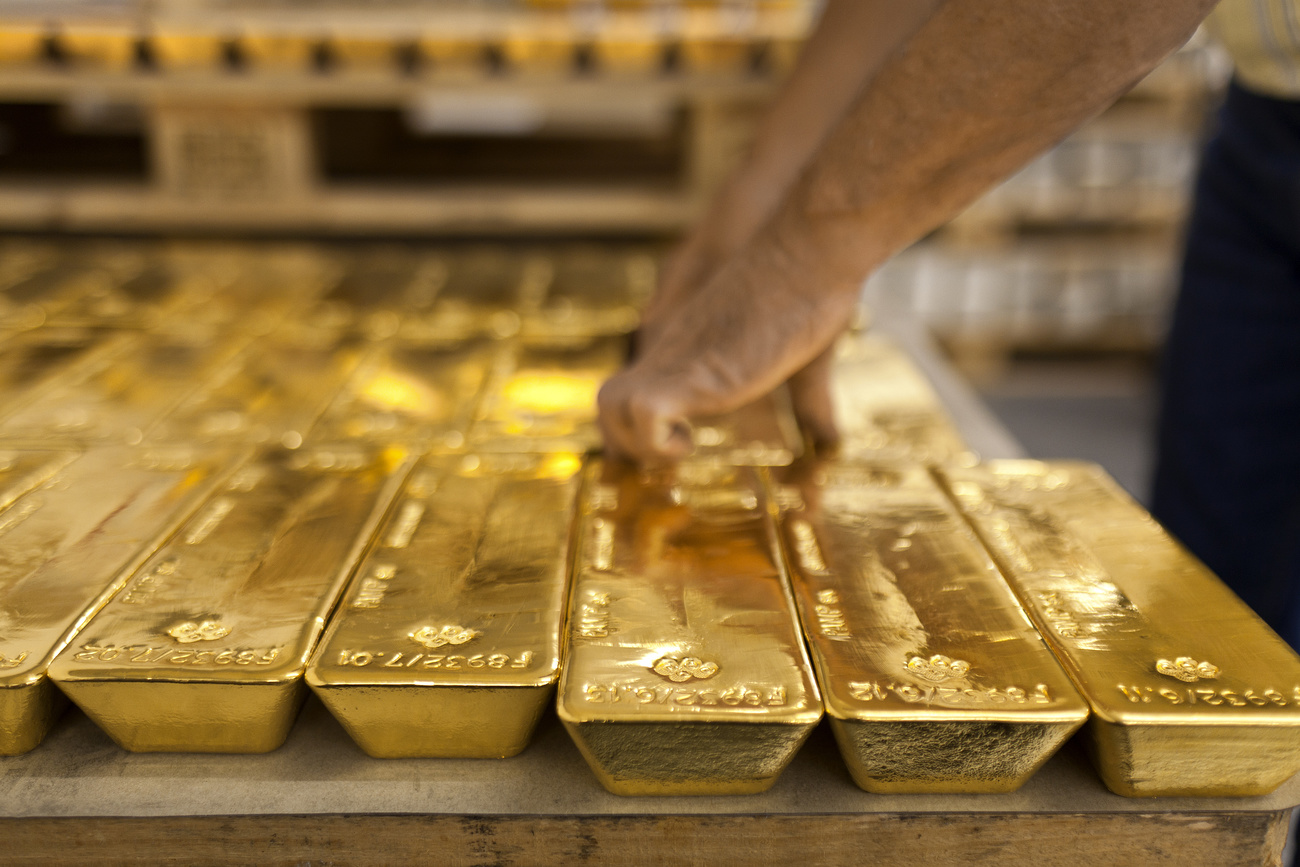
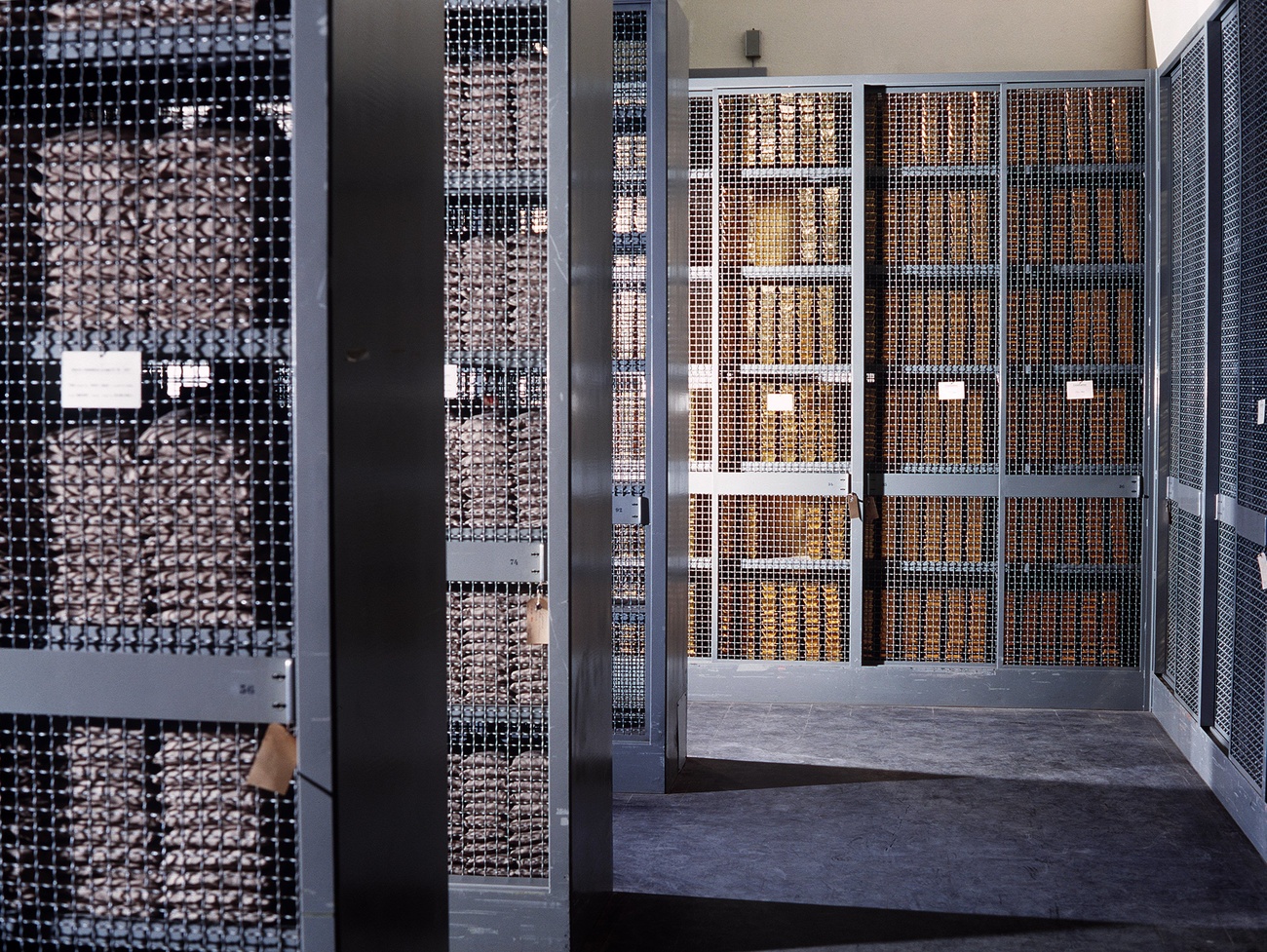
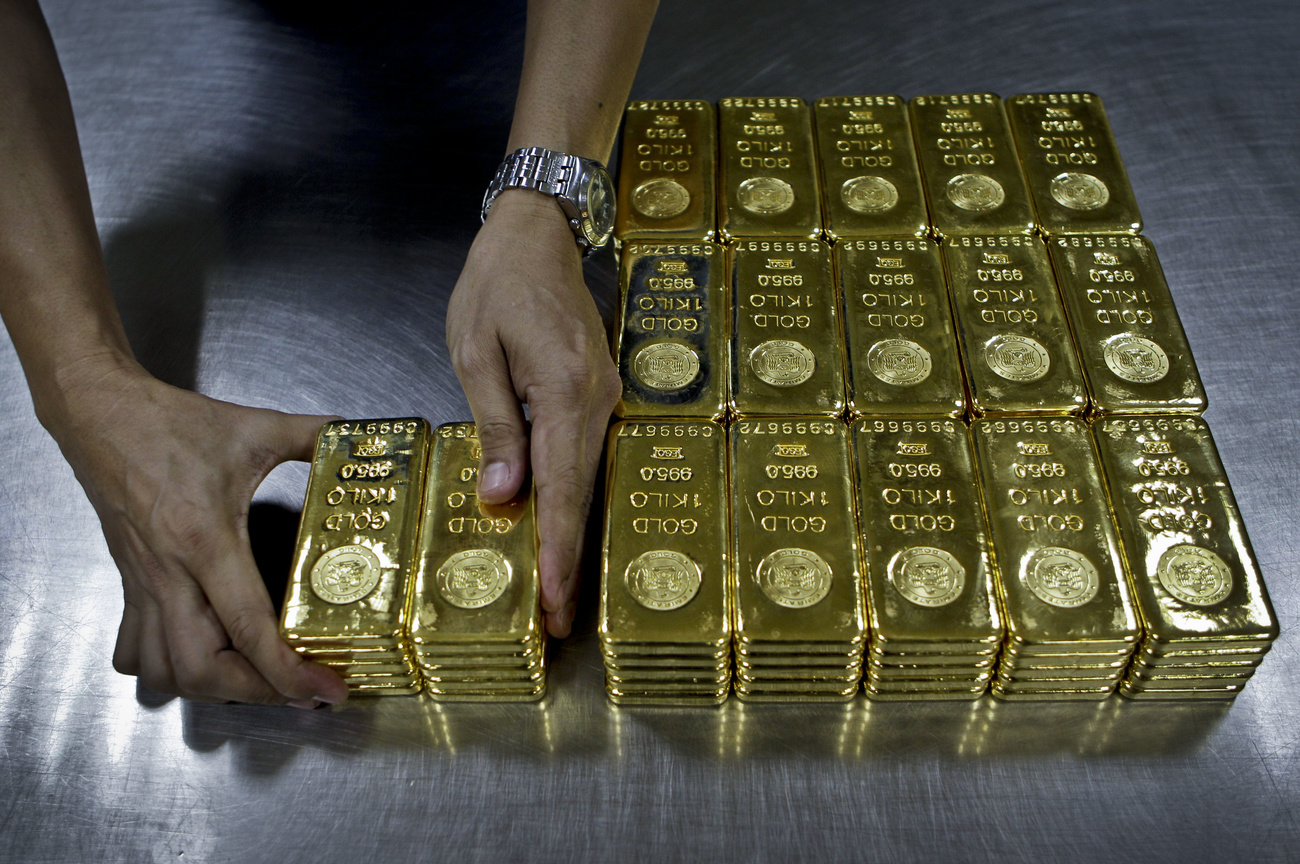
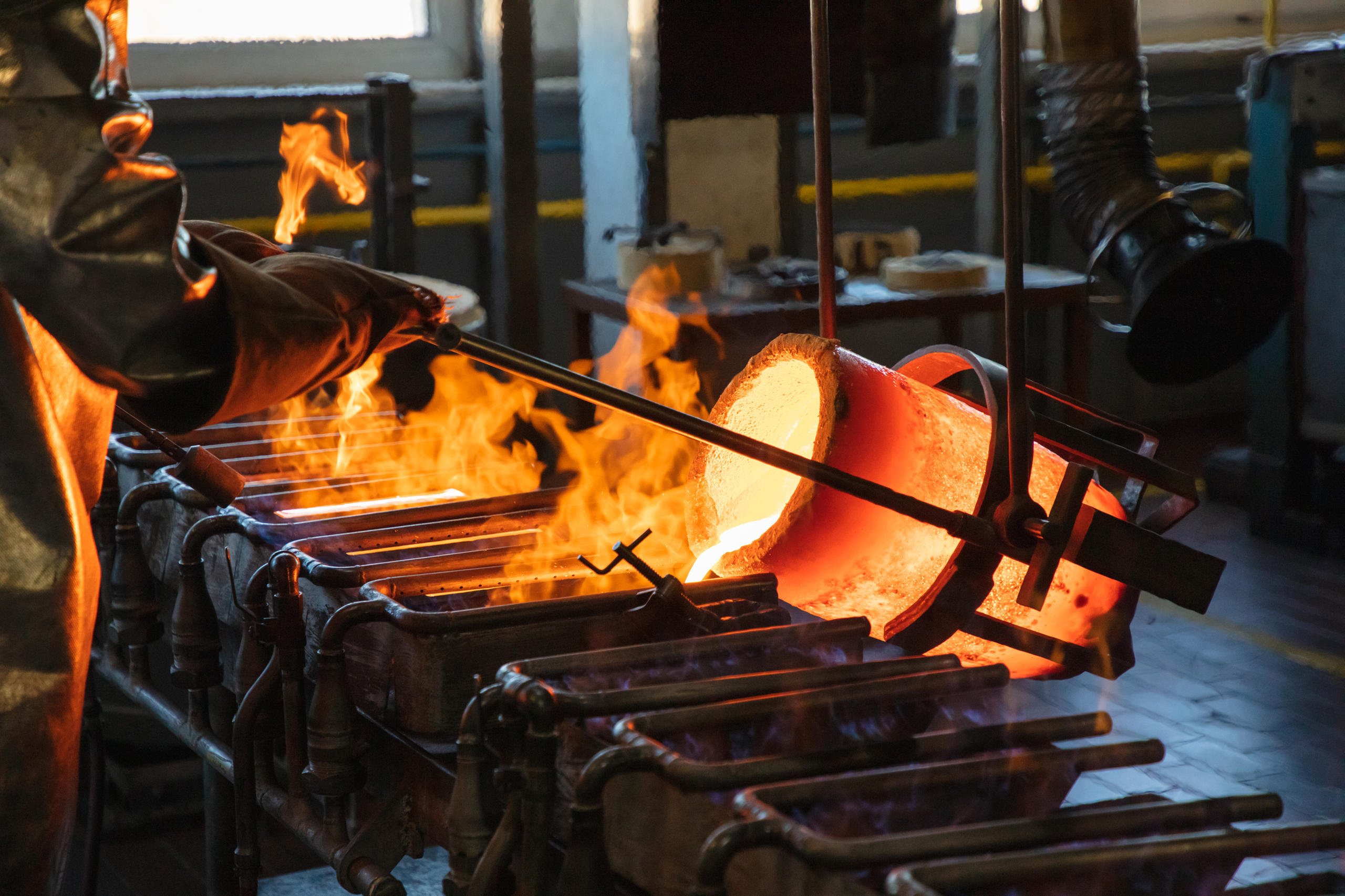
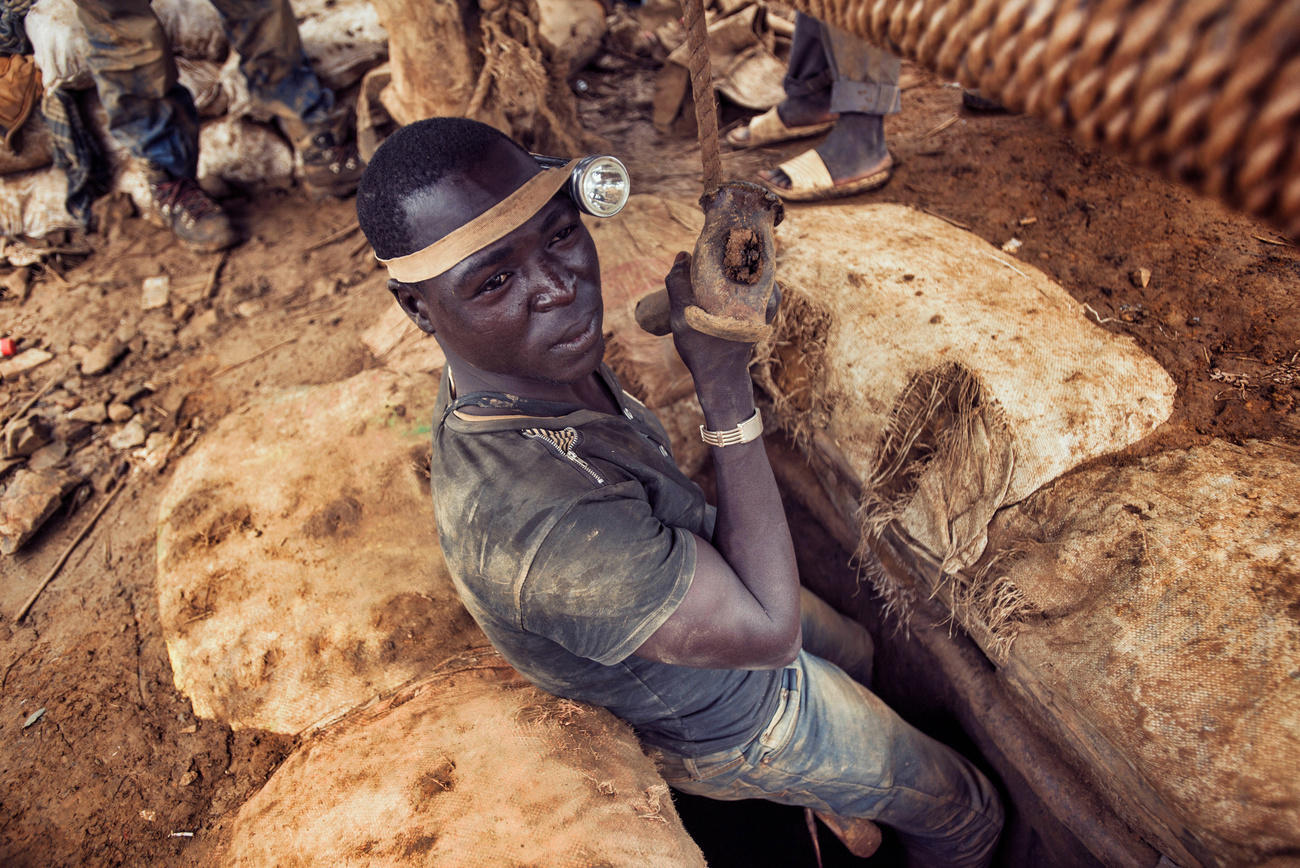
You can find an overview of ongoing debates with our journalists here . Please join us!
If you want to start a conversation about a topic raised in this article or want to report factual errors, email us at english@swissinfo.ch.